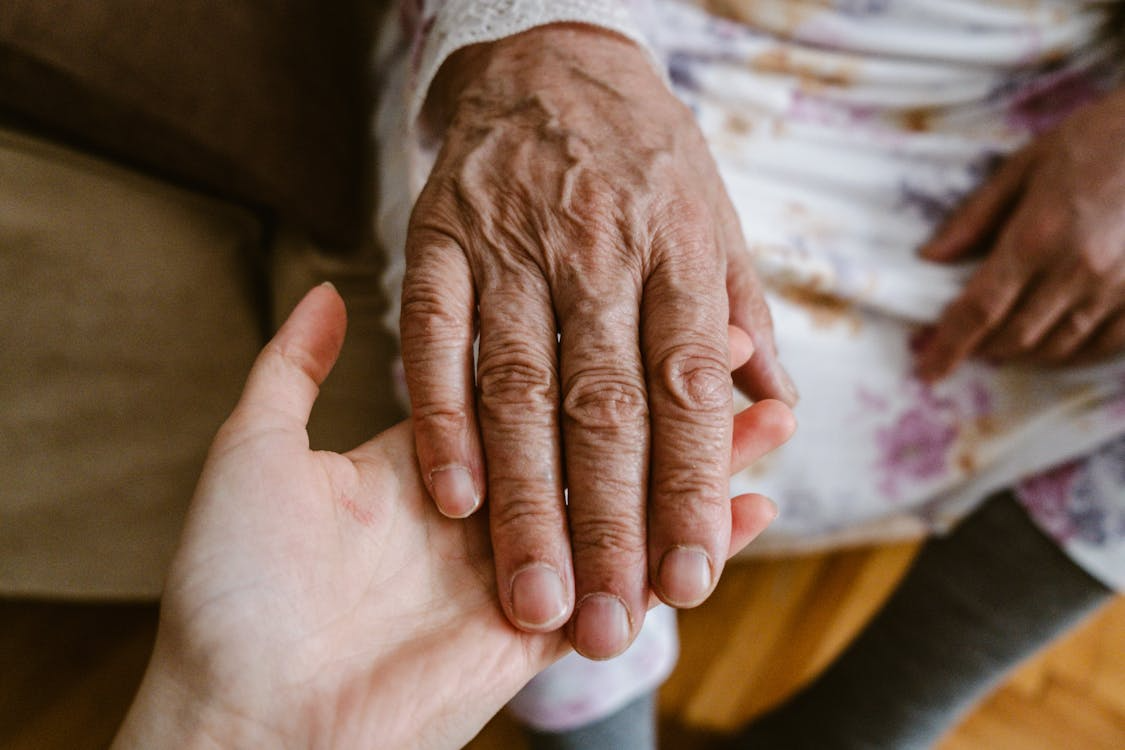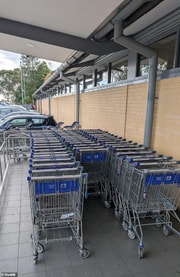
Australia is on the brink of a crisis few are prepared for.
Behind closed doors, families are being stretched thin by the demands of caring for both their children and their ageing parents.
Experts warn the toll will not just be personal—it could reshape the nation’s workforce.
New research from the Violet Initiative's 2025 Care Index revealed that more than 2 million Australians were set to become unpaid carers within the next five years.
In this Article
This looming challenge has been dubbed the burden of the 'sandwich generation'—people caught between raising children while also providing care for elderly parents.
What makes a sandwich carer?
Caring for children (often still at home or financially dependent)
Supporting ageing parents with daily activities, medical care, or emotional needs
Usually aged 40-65, though increasingly starting younger
Often working full or part-time while managing care duties
Providing an average of 20+ hours of unpaid care weekly
The study found that 2.2 million Australians were expected to take on this unpaid role by 2030, with serious consequences for families and employers.
Sarah, a 52-year-old accounts manager from Brisbane, knew this reality all too well.
‘I've turned down two promotions in the past three years.
How could I take on more responsibility at work when I'm already drowning?
My boss says he understands, but I can see the frustration when I need another afternoon off for Dad's appointments.’
The hidden toll on families and work
Seventy-three per cent of those impacted already worked full-time while juggling their responsibilities at home.
More than half—53 per cent—were forced to choose between their careers and their caregiving duties.
A further 67 per cent reported facing workplace discrimination as a result.
Among those living this reality was the Dominello family.
Josie Dominello, diagnosed with dementia, entered an aged care facility where she received visits from her children, including former NSW senior minister Victor Dominello.
‘It became really, really hard, so we had to make the really tough call and put Mum in a home.’
He admitted the most painful part was ‘to say goodbye to Mum every night feeling like she's alone’.
Women Bear the Burden
The gender disparity in caregiving is impossible to ignore.
Primary carers are most commonly female (72 per cent, compared with 50 per cent of other informal carers in 2018).
This imbalance has profound implications for women's careers, retirement savings, and overall quality of life.
Did you know?
Did you know? Research shows that women who take time off work for caregiving responsibilities can lose up to $400,000 in lifetime earnings and superannuation contributions, significantly impacting their retirement security.
Dr Michelle O'Shea from Western Sydney University notes a particularly concerning trend: many women don’t even identify as carers.
‘It means they’re not necessarily reaching out for available workplace or government assistance,’ she explains.
This lack of recognition compounds the challenges they face.
When Love Becomes a Full-Time Job
The Dominello family's story resonates with millions of Australian families.
Former NSW minister Victor Dominello’s experience of placing his mother Josie in aged care after her dementia diagnosis highlights the heart-wrenching decisions families face daily.
‘It became really, really hard, so we had to make the really tough call and put Mum in a home,’ Dominello shared, adding that the hardest part was ‘to say goodbye to Mum every night feeling like she’s alone.’
What the Dominello family experienced is becoming increasingly common.
Women aged between 50 and 69 were the biggest providers of unpaid, ongoing care, with over 12 per cent caring for a person with a disability or an older person.
These carers often sacrifice their own wellbeing, with research revealing as many as 9 in 10 (90 per cent) have experienced signs of caregiving burnout, including emotional exhaustion (47 per cent), sleep disturbances (46 per cent), and physical exhaustion (45 per cent).
The Hidden Financial Hemorrhage
Beyond the emotional toll lies a financial crisis that few families are prepared for.
On average, sandwich generation carers contribute nearly $1,500 every month to support their ageing parents or in-laws.
When combined with the costs of raising children, many families find themselves in severe financial stress.
The broader economic impact is staggering. The replacement value of the unpaid care provided is $77.9 billion per year in Australia, yet carers receive minimal financial support.
As Carers Australia CEO Annabel Reid emphasises, 'Australia's economy would collapse without them.'
Support Exists, But Few Access It
Despite the overwhelming need, nearly 1 in 4 (23%) caregivers have accessed financial support programs, while close to 7 in 10 (68%) have not.
This gap between need and support represents a critical failure in our social safety net.
Financial Support Available for Carers
Carer Payment: Income support for those unable to work due to caring duties
Carer Allowance is $159.30 each fortnight
Carer Supplement: Annual payment of $600 for each eligible payment
Respite care services through My Aged Care
Carer Gateway: Free counselling and peer support
Contact: Call Services Australia on 13 27 17 or visit servicesaustralia.gov.au
The federal government has recognised the crisis, committing nearly $800 million towards increasing supports available to informal and family carers of older Australians in the 2021-22 budget.
Additionally, they’re providing $10 million to double support for young carers to continue their education through the Young Carer Bursary program.
A nation urged to prepare
Dominello warned that Australia needed to rethink its approach to end-of-life planning, pointing out that the number of people aged 85 and older was expected to increase fivefold in the next five years.
‘There are going to be more and more people like my Mum that require heightened need and heightened care,’ he said.
‘As a nation, we need to start planning for that.’
Action Steps for Sandwich Generation Survival
Start family conversations about ageing and care preferences early
Research financial support options before crisis hits
Build a support network of family, friends, and professionals
Prioritise self-care to avoid burnout
Advocate for workplace flexibility
Connect with Carer Gateway for free support services
Consider professional financial planning for care costs
Organisations such as Violet, a digital platform for end-of-life preparation, have begun stepping in to help families navigate these difficult conversations.
‘I’d like to see every 75-year-old in the country having these conversations with their family,’ Violet chief executive Melissa Reader said.
‘When those conversations and plans don't take place, people are making crisis decisions in hospital corridors.’
The Path Forward
The sandwich generation crisis isn't just about individual families - it's about the kind of society we want to be.
Around one in eight (11.9%) Australians provided unpaid care to people with disability and older people, up from 10.8% in 2018, and this number will only grow as our population ages.
We need systemic change: better workplace policies, increased government support, and a fundamental shift in how we value unpaid care work.
Most importantly, we need to recognise that today's carers are tomorrow's care recipients.
The Workplace Revolution We Need
Forward-thinking employers are beginning to recognise that supporting sandwich generation employees isn't just the right thing to do - it's essential for business continuity.
61.4% of carers who spent 1-19 hours per week caring experienced barriers, compared with 80.7% of those who spent 40 hours or more per week caring, highlighting how care responsibilities intensify over time.
Example Scenario
- Margaret, 58, from Adelaide Negotiated a compressed work week with her employer, allowing her to work four 10-hour days. This gives her Fridays for her mother's medical appointments and shopping while still maintaining full-time employment. 'My productivity actually increased,' she reports. 'I'm less stressed knowing I have that dedicated care day.'
Some organisations are pioneering carer-inclusive workplace policies, offering flexible hours, work-from-home options, and dedicated carer's leave.[/p
However, these remain the exception rather than the rule.
What This Means For You
More than 2 million Australians were expected to step into the role of unpaid carers within the next five years, creating a challenge that affects families across the nation. The so-called 'sandwich generation' carried the dual weight of supporting children while also caring for ageing parents, leaving many stretched beyond their limits.
On top of this, workplace strain continued to rise, with carers reporting discrimination and being forced to make painful sacrifices in their careers. Experts stressed that families—and Australia as a whole—needed to plan ahead for end-of-life care to avoid leaving loved ones and carers in crisis. For older Australians, this reality may already feel familiar, but it is also a reminder that your voice and lived experience are essential in shaping how the nation responds to the care crisis.
Disability, Ageing and Carers, Australia: Summary of Findings, 2022 — Reports that there were 3.0 million carers in Australia in 2022, up from 2.6 million in 2018.
https://www.abs.gov.au/statistics/h...ers-australia-summary-findings/latest-release
Concerns for ‘sandwich carers’ - National Seniors Australia — Notes that about 5% of Australians belong to the sandwich generation.
https://nationalseniors.com.au/news/latest-news/concerns-for-sandwich-carers
Unpacking the Sandwich Generation - Tribeca Financial — Highlights that women spend more hours per week on unpaid care and experience higher rates of burnout (55% women vs 29% men).
https://www.tribecafinancial.com.au/the-sandwich-generation/
Unpacking the Sandwich Generation - Tribeca Financial — Reports that women aged 50–69 are the largest providers of unpaid ongoing care, with over 12 per cent caring for someone with a disability or older person.
https://www.tribecafinancial.com.au/the-sandwich-generation/
The sandwich generation phenomenon unpacked - Baptcare — States that 90% of carers experience signs of burnout, with emotional, sleep, and physical exhaustion being most common.
https://www.baptcare.org.au/news/sandwich-generation-phenomenon/
The sandwich generation phenomenon unpacked - Baptcare — Notes that sandwich generation carers may manage their ageing parents’ finances in addition to their own, contributing nearly $1,500 per month on average.
https://www.baptcare.org.au/news/sandwich-generation-phenomenon/
Home - Carers Australia — Estimates the replacement value of unpaid care in Australia at $77.9 billion per year.
https://www.carersaustralia.com.au/
The sandwich generation phenomenon unpacked - Baptcare — Emphasises that Australia’s economy would struggle without carers.
https://www.baptcare.org.au/news/sandwich-generation-phenomenon/
Informal carers - Australian Institute of Health and Welfare — Notes that 72% of primary carers are female.
https://www.aihw.gov.au/reports/australias-welfare/informal-carers
The sandwich generation phenomenon unpacked - Baptcare — Reports that 23% of carers accessed financial support programs, while 68% did not.
https://www.baptcare.org.au/news/sandwich-generation-phenomenon/
Annual Carer Supplement payments for carers start 3 July 2025 - Services Australia — States that the Carer Allowance is $159.30 each fortnight.
https://www.servicesaustralia.gov.au/annual-carer-supplement-payments-for-carers-start-3-july-2025
Informal carers - Australian Institute of Health and Welfare — Reports the government committed nearly $800 million in the 2021–22 Federal Budget to support informal and family carers.
https://www.aihw.gov.au/reports/australias-welfare/informal-carers
Measuring the contribution of unpaid care in Australia | Treasury Ministers — Provides $10 million to support young carers continuing education through the Young Carer Bursary program.
https://ministers.treasury.gov.au/m.../measuring-contribution-unpaid-care-australia
Disability, Ageing and Carers, Australia: Summary of Findings, 2022 — Notes that carers providing 40+ hours per week are more likely to experience barriers (80.7%) than those providing 1–19 hours (61.4%).
https://www.abs.gov.au/statistics/h...ers-australia-summary-findings/latest-release
Disability, Ageing and Carers, Australia: Summary of Findings, 2022 — Around 11.9% of Australians provided unpaid care to people with disability or older people, up from 10.8% in 2018.
https://www.abs.gov.au/statistics/h...ers-australia-summary-findings/latest-release
How prepared are we to face a future where unpaid care becomes the backbone of Australia’s ageing society?







